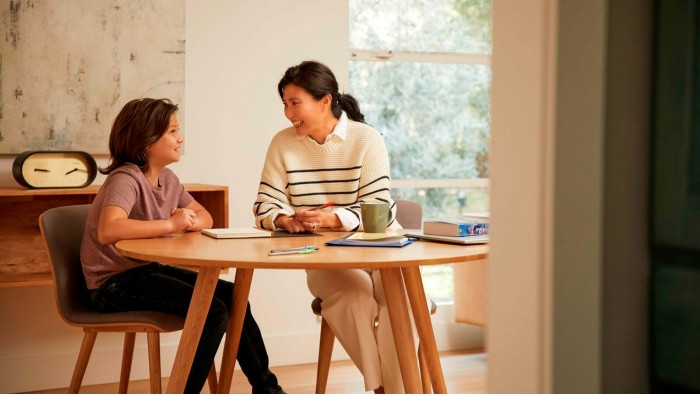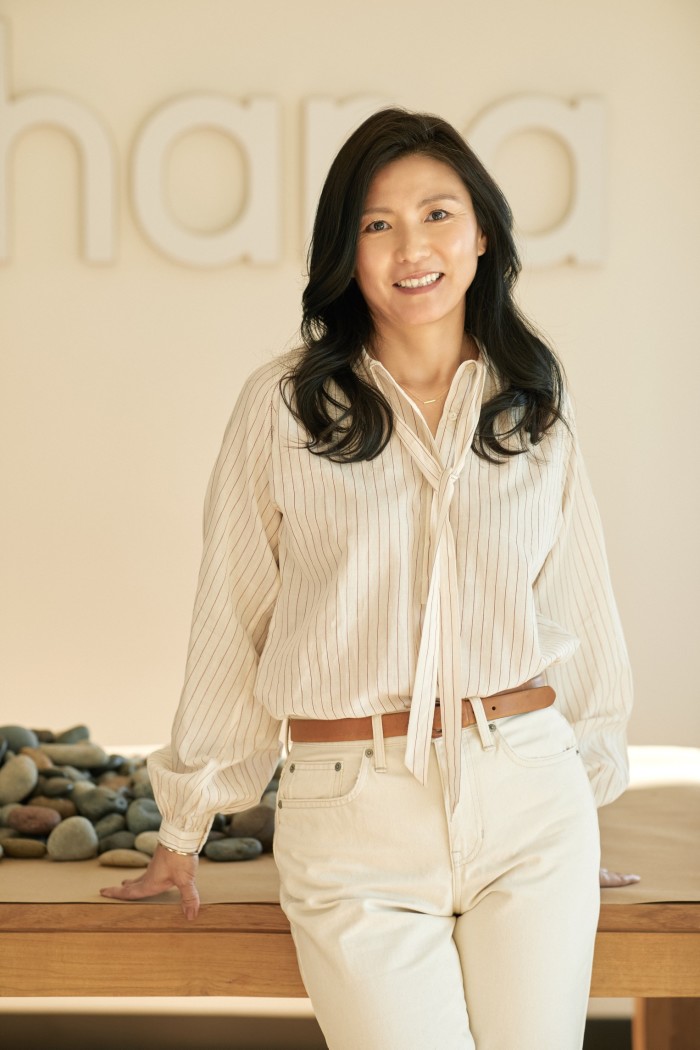On a mission for the appliance of science to Japanese family life

Roula Khalaf, Editor of the FT, selects her favourite stories in this weekly newsletter.
Growing up in Japan as a female only child held challenges, says Yoky Matsuoka.
At that time — the mid-1980s — fewer than 8 per cent of Japanese scientists were women. “I realised how hard it was to be a girl,” recalls Matsuoka, speaking during a recent visit to Tokyo from Silicon Valley, where she is now based. “I felt like I was discouraged from being good with maths and science, and there were a lot of ceilings presented.”
Yet her subsequent career in robotics and neuroscience includes co-founding Google’s experimental X lab and her current role as an executive at Panasonic, the Japanese technology conglomerate.
Matsuoka left Tokyo at 16, initially to become a professional tennis player. An injury ended the dream, but she pursued her studies in the US, where she was awarded a PhD in electrical engineering and computer science by Massachusetts Institute of Technology. Her career then took her even further from her upbringing as she left academia for Silicon Valley, with stints at Nest Labs, the smart-home company that is now part of Alphabet, and — briefly — Apple.

Nearly four decades later, however, Matsuoka has reconnected with her Japanese roots by bringing her personal concierge service, Yohana, aimed at busy families, to Tokyo. Set up in Seattle in 2021, the launch of Yohana in the Japanese capital last month is intended to address the country’s continuing struggle to keep women in the workforce as they raise children.
Despite a government-led push for female empowerment under the “womenomics” programme of 2013, only 9.1 per cent of executives at listed Japanese companies are women. And, last year, the country was ranked 116th out of 146 countries for gender parity by the World Economic Forum.
It has led prime minister Fumio Kishida to promise — and prioritise — “unprecedented” childcare support, and to warn that Japan may be “on the brink of whether it can maintain its social functions”.
Against this background, “it is getting to the point that families are willing to get a little bit of help”, Matsuoka argues.
Her Yohana service, which has roughly 200 employees in the US and Japan, matches families with human assistants to help with a wide range of tasks — from online shopping, to sending flowers, or organising holidays.
The idea for the venture came from her experiences as a mother of four, especially in the pandemic when schools shifted to online learning and Matsuoka to online-only meetings: “I felt like I was failing in everything. That was really a turning point,” she says.
She feels that parents — women in particular, but men, too — now find it easier to admit they are overwhelmed. Also, she thinks they are more aware of the challenges involved in taking care of both their families and of themselves.
Although the pandemic helped Matsuoka crystallise the idea behind Yohana, she had also made a pivotal career change just before Covid struck. She left Google in 2019 to work with Panasonic — whose founder Konosuke Matsushita believed, a century ago, that appliances could free women from the burden of household labour.
The move proved to be a good fit for her vision of developing tech to enhance families’ wellbeing, and led to the development of Yohana, now a fully owned Panasonic subsidiary.
For the tech group, Matsuoka’s appointment was designed to inject new thinking into an organisation urgently seeking to move away from its hardware focus and embrace the digital era.
After living outside Japan for so long, Matsuoka describes herself as “a hybrid person”, who still possesses “a bit of Japanese character” — and an insight into the country’s culture and the challenges working women face.
One of those is to relinquish at least some domestic responsibilities. Matsuoka has felt the weight of them, in two ways. First, as a single child, she was used to tackling tasks on her own and, for a long time, she could not delegate to other people. Then, later, “raising my four kids, my parents assumed I would do everything. Even hiring a nanny service was a big barrier,” she says.
The first time she used a cleaning service, she cleaned the entire house beforehand. It took three months to let the habit go: “I realised that, if I were to worry about the judgment of delegation and keep cleaning the bathroom while also needing to be with my kids, I would never be able to contribute to society.”
Matsuoka admits that removing the psychological barrier to delegation will be difficult. And, at a monthly cost of $249 per month in the US and ¥18,000 ($134) in Japan, the Yohana service is a luxury for many households.
However, Matsuoka argues that it will create much-needed extra time for families. She also signals longer-term ambitions to work with Panasonic to tackle the challenge of caring for the elderly in a country that has one of the world’s fastest-ageing societies.
“I’m a stereotypical sandwich generation that has four kids and two parents, and all of them need me,” Matsuoka says. “So I want something selfishly to help me care for them in the best way possible.”
Essay competition: win a free EMBA
The FT launches its annual Women in Business essay competition in partnership with the 30% Club and Henley Business School. The prize is a fully funded place on Henley’s part-time Executive MBA programme.
This year’s question is: ‘Affordable and flexible childcare is a challenge that concerns everyone. What role can employers and policymakers play?’
The deadline is May 22
More information: hly.ac/WiLscholarship
Comments